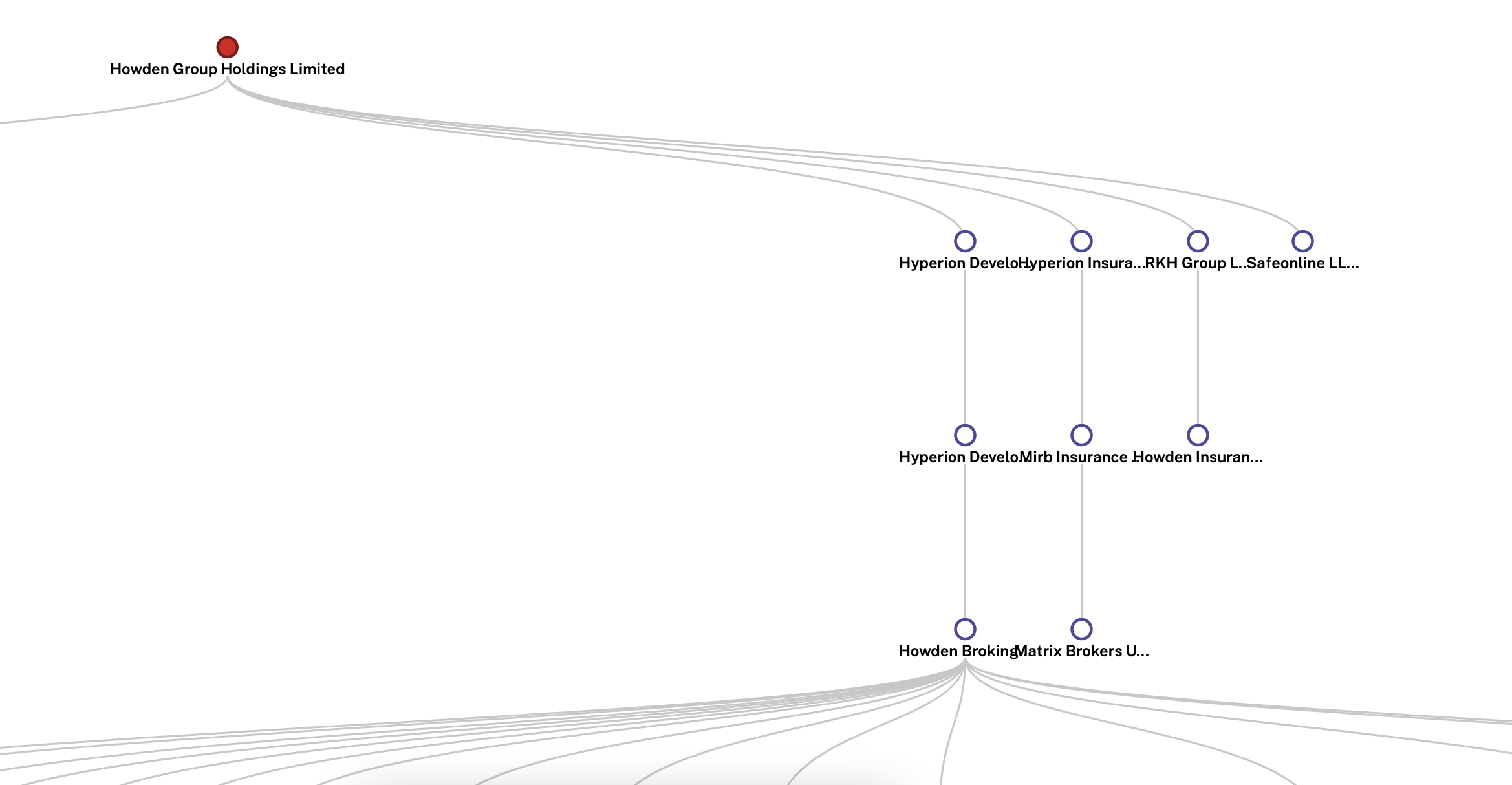
UK Universities: How to Check You’re Partnering with Trusted Entities
Quickly understand the corporate structure of an organisation, to protect your institution.
The UK’s research and innovation sector is thriving, attracting investment from around the world. International partnerships contribute to over half of the research in the UK. Universities already dedicate considerable resources to assessing the financial stability and potential fraud risks of research partners or funders. But it’s just as important to evaluate whether these partners raise ethical or national security issues.
Given the present geopolitical environment, it would be naive to assume that all states and entities have good intentions. It’s possible that some may take advantage of the open nature of international research collaborations for their own means or agendas.
For academic institutions, this throws up issues across the entire university. Every team, from research to procurement to due diligence teams, have to be careful with who they trust to work with. And yet, great work is done when you trust those you’re partnering with and agree on a shared goal. So, how can universities check the legitimacy of potential collaborators? That’s where the value of corporate structure data comes in.
New government regulations: Trusted Research
But the UK government and universities acknowledge the need to make sure this funding is coming from credible sources. That’s why the government brought in a new initiative in 2019.
Trusted Research focuses on preserving the integrity of these international collaborations, which are essential for the UK’s research and innovation success.
This initiative is particularly significant for researchers in STEM fields, emerging technologies, and areas with commercially sensitive research. Created with input from the research and university communities, the guidance is intended to help the UK’s top-tier research and innovation sector benefit from global scientific collaboration while protecting intellectual property, sensitive research, and personal data.
Knowledge exchange, explained
Discover how universities and businesses can come together to empower economic impact, and increase income revenues.
How to check a company’s corporate structure using Beauhurst
You need to make sure a company is legitimate and someone you can trust. Fortunately, we have corporate structure data available on the Beauhurst platform.
Let’s imagine for example that you’re a university looking for companies to partner with, but you need to make sure that the company doesn’t come from an unregulated parent company.
All the information you’ll need is on the ‘Corporate structure’ tab on a company’s profile.

The benefits of using Beauhurst vs Companies House
Beauhurst’s data visualisation allows you to see Corporate Structures in a clear and concise manner.
For instance, if we take a look at Howdens, on the Corporate Structure page, you’ll see this.

The corporate structure shown on the right is scrollable through, or to make your life even easier, you can download it as a PDF. Under this, you’ll also see a visualised version of this, mapped out as a tree. Here’s a small part of one below, as an example.

The benefit here is that our platform makes it much easier to see corporate structures both literally and figuratively.
Let’s break that down even further. On Beauhurst, you can see:
- The corporate structure in an easy-to-view graphic, allowing you to trace the lineage up to the ultimate parent to see what country they are headquartered in
- PSC data (Person with Significant Control) — see who, for example, has a say in the business, or whether it’s an individual director or a parent company
- The director history on a chart — see all the directors who have, or are, working there
- CCJ (County Court Judgement) data — see if they’ve had any outstanding CCJs
What’s even better? All of this is searchable. This means that if you’re building lists of companies on Beauhurst, you can exclude any companies who don’t meet your criteria, for example, if they’re owned outside the UK.
This means you can avoid spending valuable time and resources going through Companies House filings trying to make sense of all the data. And ensures you’re not accidentally partnering with a company that’s not reputable or might share UK technology that you don’t want shared.
To find out more information, and see how the platform works, book a demo with one of our experts.
Get to know Beauhurst
See how universities can use Beauhurst to discover new businesses, track spinouts, find funding and much more.
Get access to this data
It couldn’t be easier to get access to this data yourself. And from the Beauhurst platform, you can find even more information.
As a university, you can use BeauhurstImpact to:
- Track spinouts
- Find companies to take part in Knowledge Transfer Partnerships
- Find funding
- Keep an eye on competitors
- Understand your institution’s performance compared to others
- And get help with data-based reporting
For a better understanding, take a look at our blog: How universities use Beauhurst.
Ready to upgrade your approach?
Discover how BeauhurstImpact can help you make a real difference.